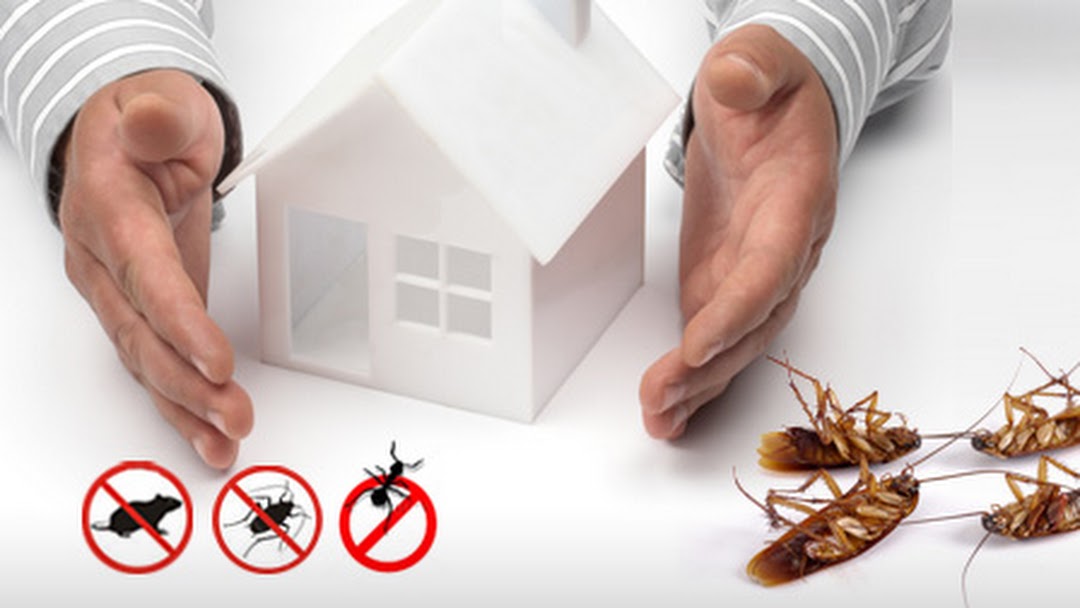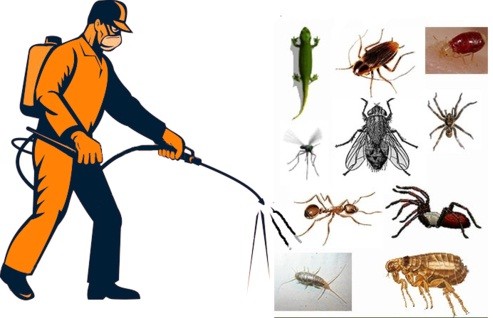Eliminate Pests Today: Expert Pest Control Visalia Solutions
Kinds of Pest Control: Which Method Is Right for Your Invasion?
When faced with a pest infestation, the selection of a suitable technique for parasite control is essential in effectively managing the situation. From chemical therapies to organic options, there exists a variety of strategies that can be employed to attend to various sorts of parasites. Each technique comes with its very own collection of factors to consider and benefits, making the decision-making process a nuanced one. Comprehending the subtleties of each technique and evaluating their compatibility with the details bug invasion available is important for achieving long-term success in bug administration. By discovering the different kinds of pest control approaches offered, people can make enlightened decisions customized to their special circumstances, making sure a much more sustainable and efficient result in bug removal.

Chemical Insect Control
Chemical bug control entails using synthetic or naturally obtained chemicals to handle and get rid of pest populaces efficiently. This technique is frequently made use of in agriculture, forestry, and property settings to battle a wide variety of bugs, consisting of bugs, weeds, and rodents. Making use of chemical pesticides can supply quick and targeted services to pest invasions, making it a popular choice for many people and businesses.
Among the crucial benefits of chemical insect control is its capability to swiftly eliminate bugs, reducing the threat of damages to crops, residential property, and human health and wellness - pest control visalia. By utilizing details chemicals that target certain bugs, this method can effectively regulate invasions while reducing injury to valuable organisms and the environment when used properly
Nonetheless, using chemical insect control additionally increases concerns regarding possible unfavorable results on non-target types, water sources, and human health and wellness. It is important to adhere to security standards, apply chemicals sensibly, and consider different pest control approaches to minimize these dangers and ensure sustainable parasite administration techniques.
Biological Bug Control
Biological parasite control, also known as biocontrol, makes use of living microorganisms to minimize and take care of parasite populaces normally. By making use of the parasite's all-natural killers or microorganisms, biological insect control provides a ecologically friendly and lasting option to pest administration.
One common example of organic insect control is the use of ladybugs to control aphid populaces in yards. Ladybugs are all-natural predators of aphids and can help maintain their numbers in check without using unsafe chemicals. In a similar way, the microorganism Bacillus thuringiensis (Bt) is utilized as a biological insecticide to control caterpillar parasites while being secure for other organisms.
Mechanical Pest Control
Making use of physical and hands-on methods to take care of parasite populations, mechanical parasite control supplies a different technique that does not count on making use of living microorganisms or synthetic chemicals. This method entails making use of obstacles, traps, or various other gadgets to literally prevent or eliminate parasites. By blocking pest access factors or establishing catches to catch them, mechanical bug control can efficiently lower invasions without presenting chemicals into the setting.
One typical instance read this post here of mechanical insect control is making use of mesh screens on doors and windows to more helpful hints protect against bugs from entering buildings. pest control visalia. This basic yet effective approach serves as a physical obstacle, maintaining insects out while allowing for proper air flow. In addition, devices like mousetraps, fly swatters, and ultrasonic repellents fall under the mechanical pest control category

Physical Insect Control
An efficient method to managing pest populations without counting on chemical or organic techniques involves using physical parasite control strategies. Physical bug control methods intend to remove or prevent insects through mechanical methods instead of chemicals or pesticides. These methods are typically chosen for their eco pleasant nature and very little effect on non-target organisms.
Some typical physical parasite control methods include the usage of barriers such as nets or displays to stop parasite entry, traps to capture and remove parasites, and hand-picking to physically eliminate insects from plants or frameworks. Furthermore, strategies like warm therapies can be utilized to regulate insects like bed pests by increasing the temperature level to levels that are dangerous to the insects.
Physical parasite control is particularly valuable in integrated bug management (IPM) approaches, where multiple bug control methods are incorporated for effective bug management while lessening making use of chemicals. By using physical parasite control techniques, people can properly attend to bug problems with minimal environmental influence.
Integrated Pest Administration
When applying physical pest control techniques as component of parasite management techniques, Integrated Bug Monitoring (IPM) becomes a detailed approach that leverages various methods to successfully regulate pest populaces. IPM concentrates on long-lasting prevention of bugs via a mix of organic, cultural, physical, and chemical tools tailored to particular insect problems. By integrating several control techniques, IPM intends to decrease the threats linked with parasites while additionally reducing dependence on chemical solutions.

Final Thought
Finally, establishing the most reliable approach of pest control for your problem depends on numerous elements such as the kind of pest, the level of the infestation, and environmental factors to consider. Chemical insect control entails the use of chemicals, biological bug control utilizes natural killers, mechanical pest control entails physical barriers, physical insect control consists of trapping or getting rid of pests, and integrated bug management integrates numerous methods for an alternative strategy to pest control. Choose the approach that finest suits your details scenario.
By using the insect's all-natural killers or pathogens, biological bug control supplies a environmentally pleasant and lasting solution to pest management.
Using hand-operated and physical methods to manage insect populaces, mechanical pest control offers an alternative technique that does not depend on the usage of living organisms or artificial chemicals.A reliable approach to managing pest populations without relying on chemical or biological methods involves the use of physical pest control techniques.When executing physical bug control techniques as component of insect administration techniques, Integrated Insect Administration (IPM) emerges as an extensive method that leverages various techniques to effectively control pest populaces. Chemical parasite control involves the usage of pesticides, organic bug control makes use of all-natural predators, mechanical parasite control entails physical barriers, physical insect control includes capturing or eliminating bugs, and integrated pest monitoring incorporates several methods for a holistic strategy to pest control.